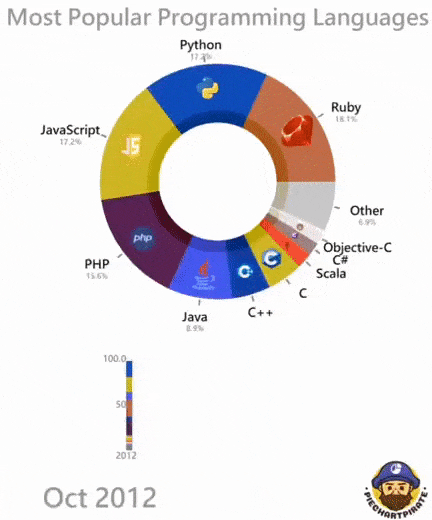Quoted from iamabearsfan:I have a general question about "C". How much is it really used in the wild anymore? Everything I hear is he should be focussing on .NET languages like C#. Is that still true?
He is a Computer Engineering major and they have the kids focussing on these lower level languages. Curious is the curriculum is current with the times.
Most important skill is not a language or library, etc, but to be able to teach yourself as you need to constantly be learning/growing/evolving to survive. This is in terms of learning languages, libraries, platforms/services, algorithms, soft skills--everything. If you have this skill and are a talented, creative, driven person, there is a lot of money to be made as a programmer.
Also, each language/platform has its pros and cons. You might use C/C++, Rust etc for high performance, realtime systems, OS, etc. But Python, C#, etc, might be a better choice for the backend of a website. Just depends on your requirements, skill set of your team, etc.
If he wants to cut his teeth on something different from C, tell him to come up with a passion project single page web app w/ back end in AWS or Azure.
For reference: I was a EE/CE but stuck with the pure software development side as I was a hobbyist and started coding when I was ~8 making stupid games, etc. Still loving it almost 16 years into my post collegiate career.



 Woodridge, IL
Woodridge, IL
 Ottawa, ON
Ottawa, ON

